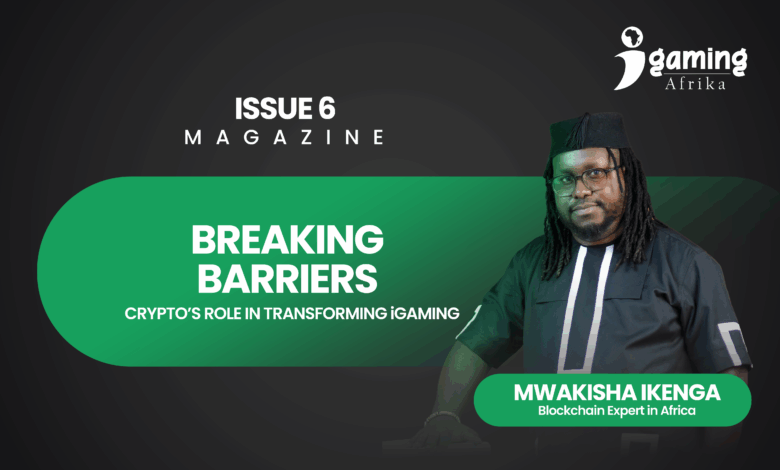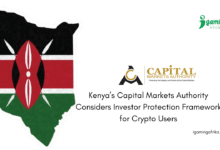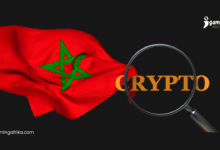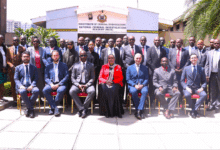Exclusive: Breaking Barriers: Crypto’s Role in Transforming iGaming

Blockchain and cryptocurrency are no longer just buzzwords—they are shaping industries across the globe, and iGaming in Africa is no exception. With a background spanning traditional banking and leading roles at Binance, Trust Wallet, Bitget, and now MEXC, Mwakisha Ikenga has been at the forefront of driving crypto adoption across the continent. In this conversation with iGaming AFRIKA, he explores Bitcoin’s role in iGaming, the opportunities crypto creates for seamless gaming experiences, and how blockchain technology can enhance transparency, trust, and financial inclusion in Africa’s fast-evolving digital betting landscape.
iGaming AFRIKA: Could you briefly introduce yourself and what you do?
Mwakisha Ikenga: My name is Mwakisha Ikenga. I’m the blockchain growth specialist in Africa, and I mainly focus with centralised exchanges. Professionally, before blockchain, I worked in the banking industry as part of some local banks. I worked with several banks, but I left the traditional banking industry to champion the growth of the blockchain space and help it scale.
I’ve worked with several blockchain companies, including Binance as the Growth Lead in the East Africa, and Trust Wallet for the African growth. Trust Wallet helped open doors for me in the African market. I later moved to Bitget, focusing on the peer-to-peer product. Currently, I’m the African growth lead for the fiat department at MEXC.
iGaming AFRIKA: Could you explain what Bitcoin is and provide some insights into its role within the iGaming space?
Mwakisha Ikenga: Bitcoin is the first digital asset, the first cryptocurrency, launched in 2009. Bitcoin is not just a currency; it is also a technology. The introduction of Bitcoin opened the door to blockchain technology, which initially wasn’t called blockchain; it was referred to as a timechain. The technology later became known as blockchain because transactions are bundled into blocks that form a chain in the database. Bitcoin, as the first currency and the “king” of blockchain and cryptocurrency, opened the door for this entire technology and helped inspire many innovations, including many other blockchains that came after Bitcoin. Bitcoin has gained a lot of traction. Today, Bitcoin’s market capitalisation and price are high. It’s the leading digital asset, and this year we’ve seen significant developments: ETFs approved by the US government and a growing regulatory framework around crypto, yet adoption continues to rise. Bitcoin is trading near its all-time high; the current all-time high is around $123,000, and I’m curious to see how far it can go.
iGaming AFRIKA: How does cryptocurrency integration enhance user experience, especially in an industry like iGaming, which is still relatively new to it, particularly in Africa?
Mwakisha Ikenga: Cryptocurrency is a very interesting subject, and its importance lies in redefining finance. We can move funds from one person to another through a process called peer-to-peer (P2P) globally, without restrictions or intermediaries blocking the transactions. For the gaming industry, including iGaming, this means players can participate globally without jurisdictional constraints. All that’s needed is crypto assets in a wallet linked to the platform, and players can use those assets to play. Whether you’re using Bitcoin, Ethereum, or stablecoins like USDT, you can participate easily. Africa loves gaming; people enjoy playing and winning, and participation should be accessible without unnecessary restrictions that could contribute to addiction. Providing crypto-enabled access can be a game-changer.
iGaming AFRIKA: There has been scepticism around cryptocurrency, especially in sectors like iGaming. How would you address these concerns and encourage a more widespread acceptance?
Mwakisha Ikenga: I believe the biggest challenge is a lack of understanding of how crypto assets work. People who don’t understand usually criticise a lot. Those with little knowledge who have not interacted with crypto assets are usually the harshest critics. But if people take time to understand how crypto works and how it solves real problems, they rarely criticise. Additionally, there have been scams in this space, which have affected perceptions. When bad actors appear, news stories about Bitcoin scams surface, and people associate crypto with scams. When hackers demand ransom in crypto, people link crypto to bad things, but that’s not the case. If you understand how crypto solves real-world problems, that perception changes. In gaming specifically, onboarding and off-ramping remain a challenge: converting crypto into fiat money that can be used daily. If platforms provide easy off-ramps, players can cash out winnings quickly, making them more comfortable using crypto assets.
iGaming AFRIKA: In what ways can integrating cryptocurrencies into gaming help address key challenges associated with fiat-based deposit and withdrawal processes?
Mwakisha Ikenga: Integrating crypto into gaming is largely about partnerships and on-/off-ramp solutions. Gaming platforms should partner with fintech providers that can facilitate easy on-ramps and off-ramps. If fintechs collaborate with gaming platforms, it becomes easy for users to convert between crypto and fiat. It’s not just about having great crypto products; you also need straightforward ways to cash out profits. If users can easily buy, sell, and convert crypto and use it in daily life, they’ll feel more comfortable using it within gaming.
iGaming AFRIKA: How does technology in the blockchain ecosystem enhance transparency and fairness in crypto betting platforms, and what challenges remain in ensuring trust and security for users?
Mwakisha Ikenga: One thing about blockchain, which has made it a mind-boggling technology, is that anyone can view the transactions on a public blockchain. This means every transaction can be traced, and every decision made on the blockchain can be viewed by any party across the globe. This means every transaction can be traced, and every decision made on the blockchain can be viewed by any party across the globe. For example, when decisions are made on a gaming platform, and if the gaming is truly decentralised, anyone can see the participating addresses or wallets that are winning and how they won.
Read Also: Exclusive: Building Trust in Uganda’s Gaming Scene: The Vision and Journey of Nasif K. Balinda
That information is open to everyone, and this transparency makes these platforms much more secure. Additionally, blockchain’s security comes from its distributed, decentralised nature. There is no single point of failure, and no one node can make a decision on behalf of the rest; consensus is required, and everyone can view and verify the results. This transparency builds a great deal of trust for gaming platforms.
iGaming AFRIKA: What role do mobile wallets and fintech integrations play in facilitating seamless crypto transactions for African users?
Mwakisha Ikenga: Mobile wallets help users significantly. Many users store their assets in wallets that can be decentralised and support multiple chains. If a game or platform runs on a certain blockchain, these wallets become critical because a user can connect the platform to their decentralised wallet and participate without moving funds from their wallet. It’s easy for users to see that their funds remain secure while playing. They can still transfer value from their wallet to a centralised exchange to convert it into local fiat currencies. Centralised wallets play an important role in gaming because they enable users to participate without actually moving funds out of their wallets.
iGaming AFRIKA: How can platforms optimise onboarding processes for first-time crypto users without compromising security or compliance?
Mwakisha Ikenga: Onboarding is a complex, multi-faceted process. First, platforms should build strong communities grounded in trust. Africa is a social society; when people trust a product and feel they won’t be cheated, that trust becomes a driver of growth. People tend to share good experiences with friends, which is an effective form of organic marketing. In addition, onboarding should use localised communication that resonates culturally rather than employing foreign jargon. If the messaging feels familiar and accessible, users will engage more deeply and feel a sense of ownership of the product. This localised approach helps growth in Africa.
iGaming AFRIKA: What best practises should crypto gaming platforms adopt to stay compliant with evolving anti-money laundering [AML] and Know Your Customer [KYC] regulations?
Mwakisha Ikenga: Regulation varies across jurisdictions, so platforms must stay informed about developments in each region. For example, Kenya is considering a comprehensive digital asset law. Being part of those discussions helps gaming platforms understand and influence local regulation. Other jurisdictions may have no regulations at all, but what I keep saying is that as you build a product, start by self-regulating. Ensure that all the users of the product can be identified. That means you’re meeting proper Kenya Know Your Customer requirements, including KYB and KYC, and ensuring that everyone onboarding the platform can be verified as an existing entity or individual.
As they do their stuff, it’s also important to know simple things like the source of income, where these funds come from. Is it borrowed from parents? Is it school fees? Once you have that, you can tell that the users who trade on this platform are students, and it is pocket money or something like that. Suppose regulations come into place and the government requests data or tries to audit what you have been doing. In that case, it becomes easy for the government to say, “okay, we can give you a licence because it shows that you have been doing proper KYC”. Other things include transaction monitoring; this is adopted by many exchanges globally and many crypto companies. They do a lot of transaction monitoring by ensuring that every transaction coming to the exchange is checked and valued, and any transaction that is beyond normal user behaviour is flagged and, if possible, investigated. So those kinds of behaviours need to be checked, and being abreast with the anti-money laundering policies of every jurisdiction is important, as is counter-terrorist financing, so that it can be easier for these platforms to exist in a space.
Read the full interview in our digital magazine:























